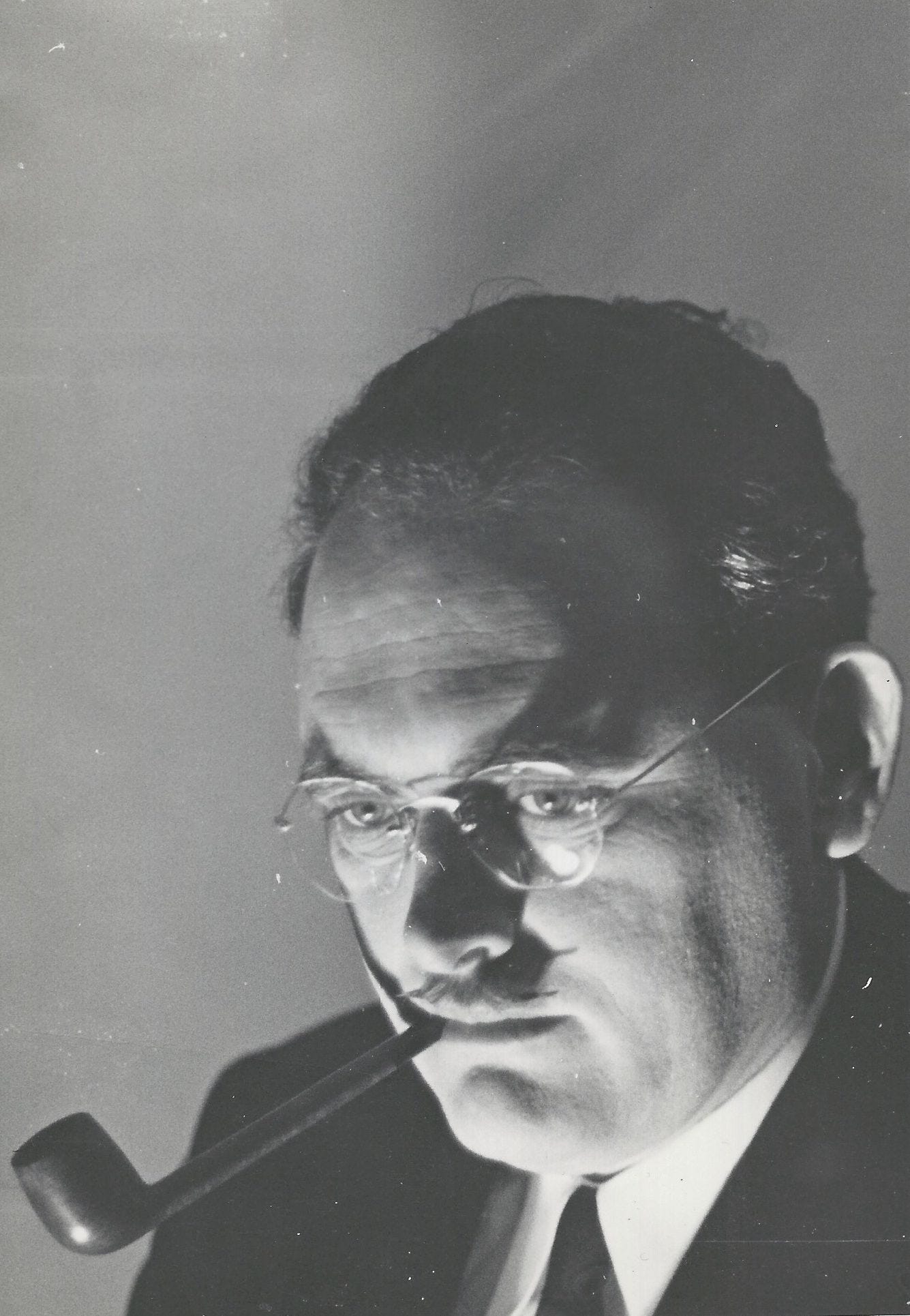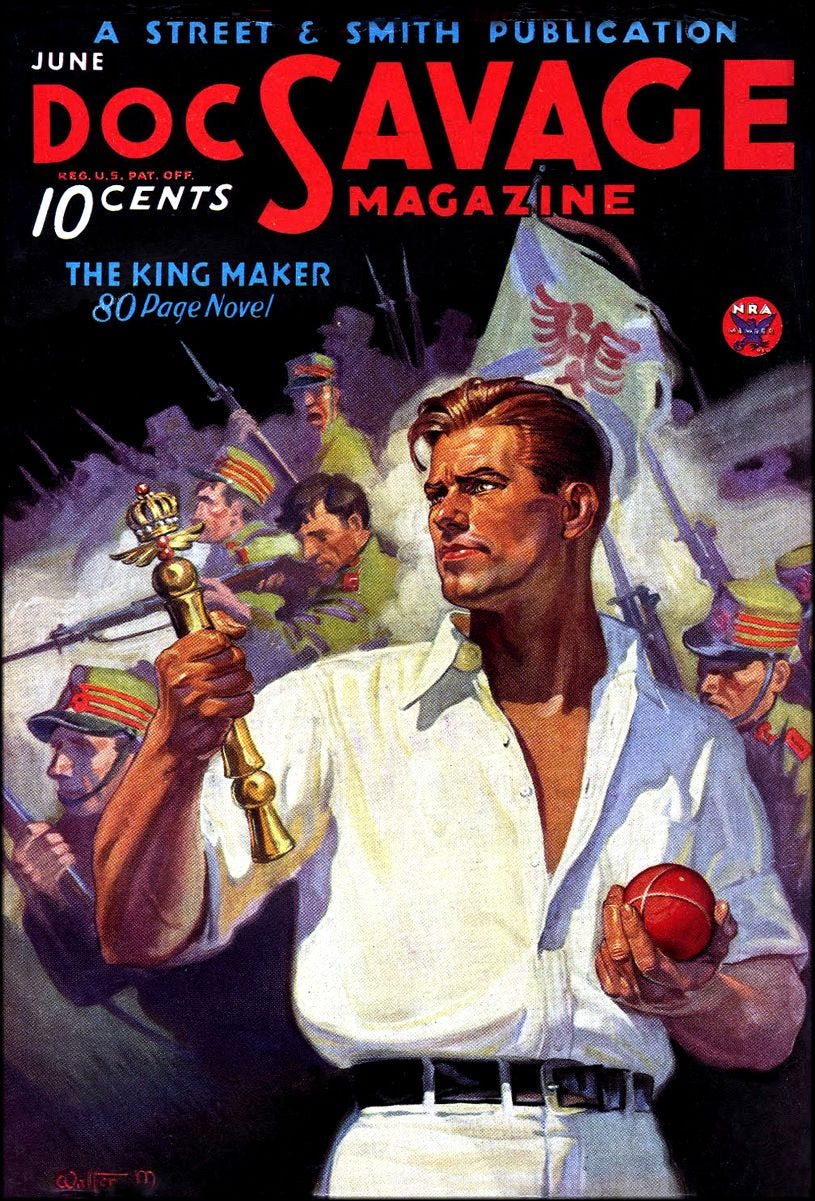It happens to all of us eventually. You stare at the blinking cursor until your eyes bleed. You hover your fingers over the keyboard, but despite all the stretching and meditating and good thoughts, nothing comes.
It’s called writer’s block.
Some writers claim that it does not exist. “It’s just another name for laziness,” they say. A retort to this would be that those writers write derivative trash over and over again, so there’s nothing to block. Both sides have a point.
Legendary science fiction author Ray Bradbury promoted the idea that all aspiring writers should produce one short story a week in order to improve their skills. That is a great goal, but only doable if you have a plot already outlined and ready to go. So, if you need such an outline, of if you want to do the whole thing super quick, why not consult old Lester Dent?
Lester Dent (1904-1959) was born to a family of Missouri ranchers in the small town of La Plata. Dent’s father was a “chronic pioneer” who moved the family to Oklahoma and Wyoming in search of new opportunities. Thus, as a boy, Lester grew up in a covered wagon underneath wide-open skies. Eventually, after the family resettled in La Plata to operate a dairy farm, young Lester graduated high school, attended a business college, and then got a good job working the telegraph wires for regional newspapers in the Midwest.
Dent dreamed of more, however. Beginning in the late 1920s, he began publishing short stories in the pulp magazines. This was a way to express his creativity while earning a supplementary income at the same time. In 1933, Dent hit on the idea that would make him famous—Doc Savage. Clark “Doc” Savage, aka the “Man of Bronze,” is a super-genius millionaire who uses his wealth, intelligence, superior physicality, and his army of agents to defeat villains of all stripes. Between 1933 and 1948, 181 Doc Savage stories appeared in the character’s own pulp magazine, with most written by Dent under the Street & Smith house name of Kenneth Robeson. Doc Savage rivaled The Shadow in terms of popularity, as the character appeared in radio plays, novellas, comic books, and film. In 1975, a feature-length Doc Savage film hit the theaters and drive-ins (and then was mostly forgotten). By that point, Dent was dead, and Superman, a direct copy of Doc Savage even down to a shared Fortress of Solitude, had usurped the original creation.
Dent’s ability to crank out so many Doc Savage tales, along with other stories, was due to his personal formula for generating plots. According to Dent, the “master plot” formula was perfect for anyone looking to quickly write a 6,000-word pulp story. “It has worked on adventure, detective, western, and war-air,” Dent claimed, and “it tells you where to put everything.” The formula is as follows:
1. A DIFFERENT MURDER METHOD FOR VILLAIN TO USE
2. A DIFFERENT THING FOR VILLAIN TO BE SEEKING
3. A DIFFERENT LOCALE
4. A MENACE WHICH IS TO HANG LIKE A CLOUD OVER HERO
Once you answer these prompts, then your next job is as follows:
1--First line, or as near thereto as possible, introduce the hero and swat him with a fistful of trouble. Hint at a mystery, a menace or a problem to be solved--something the hero has to cope with.
2--The hero pitches in to cope with his fistful of trouble. (He tries to fathom the mystery, defeat the menace, or solve the problem.)
3--Introduce ALL the other characters as soon as possible. Bring them on in action.
4--Hero's endevours land him in an actual physical conflict near the end of the first 1500 words.
5--Near the end of first 1500 words, there is a complete surprise twist in the plot development.
At this point, the idea is to stop and take stock of what you have written. Ask yourself: Is the story suspenseful so far? Is there any action? If satisfied, then move on to your next 1,500 words:
1--Shovel more grief onto the hero.
2--Hero, being heroic, struggles, and his struggles lead up to:
3--Another physical conflict.
4--A surprising plot twist to end the 1500 words.
Again, is there suspense? Also, and this is key, Dent always encouraged formula followers to show, not tell. This means cut down on the exposition and get down to the fighting. Next, after your second 1,500 words, it is time for your third 1,500 words:
1--Shovel the grief onto the hero.
2--Hero makes some headway, and corners the villain or somebody in:
3--A physical conflict.
4--A surprising plot twist, in which the hero preferably gets it in the neck bad, to end the 1500 words.
If the suspense is still there, then that is perfect. Also, by this point, things should look bleak for your heroic protagonist. Readers must feel like his or her ability to defeat the story’s blackguard is in jeopardy. Now, with all that done, comes the final 1,500 words:
1--Shovel the difficulties more thickly upon the hero.
2--Get the hero almost buried in his troubles. (Figuratively, the villain has him prisoner and has him framed for a murder rap; the girl is presumably dead, everything is lost, and the DIFFERENT murder method is about to dispose of the suffering protagonist.)
3--The hero extricates himself using HIS OWN SKILL, training or brawn.
4--The mysteries remaining--one big one held over to this point will help grip interest--are cleared up in course of final conflict as hero takes
the situation in hand.
5--Final twist, a big surprise, (This can be the villain turning out to be the unexpected person, having the "Treasure" be a dud, etc.)
6--The snapper, the punch line to end it.
This, my friends, is how your write a punchy, two-fisted story regardless of genre. There must be action, suspense, drama, and a deep and disastrous threat to the hero. If you can accomplish all that, then you will not only be able to write a good pulp tale, but you will be able to write a lot of them.
So, if you are one of the unlucky few struggling with writing right now, maybe take a second, sip some bourbon, and plug in Lester Dent’s formula. The results may surprise you.






I know Big Dave has strong opinions on writer's block... I have to admit though, it struck me for almost 18 months... but I believe in the muse, and, as Dave will be able to attest from my spamming his inbox, she has been back with me for the last three months... sorry Dave but she is still hanging around and I'm still writing :)
I discovered Dent's formula only a couple of months ago and already I'm using it on a full rewrite of a first draft and the whole process is actually quite enjoyable. Also impossible not to see it in just about every story or film I consume.